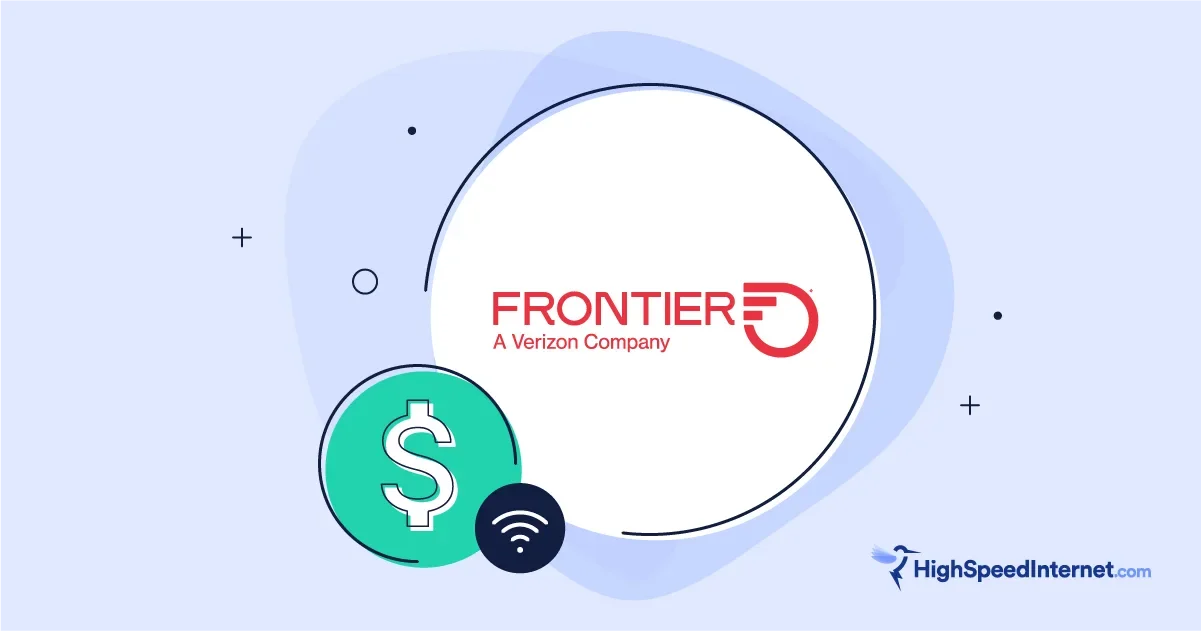Best Internet Plans and Discounts for Seniors
Uncover essential info on discounted internet services for retirees
Jan 14, 2025 | Share
Brand Guides, Equipment Guides
- Discounts for Supplemental Security Income (SSI) recipients
- Discounts for New York Senior citizen rent increase exemption
- Access program for households in California that receive SSI benefits
- Wireless discounts for veterans
- Discounts for Supplemental Security Income (SSI) recipients
- Discounts for veterans
The internet is an important resource for seniors. It can be used to pay bills, buy groceries, and manage finances all without leaving the house. It’s also one of the easiest ways to keep in touch with friends and family. And fortunately for those on a budget, there are plenty of internet plans and discounts designed specifically with seniors in mind.
When looking for an affordable internet plan for seniors, it’s important to remember that there are a lot of programs available to get cheap or discounted internet service. In fact, many discount programs for internet are designed specifically with seniors in mind.
How Much Internet Speed Do You Need?
Est. Time: 60 seconds
Answer 6 questions and get a personalized internet speed recommendation!
How many people in your household use the internet/WiFi on a daily basis?
How many devices in your home connect to the internet, including tablets, gaming consoles, and smart devices?
How many people in your household work from home?
What video quality do you use for streaming TV and movies?
How intensely does your household participate in online gaming?
Does your household download large files from the cloud or via the internet?
Government internet programs for seniors
Many different government programs hep people get access to affordable internet. Depending on your situation, you might qualify for at least one. You can find out more in our in-depth guide to government internet assistance programs.
Looking for internet?
Type in your zip code below to see internet providers available in your area.
Internet provider discounts for seniors
Many service providers have their own programs for affordable internet, which you can find in our guide to free and reduced-cost internet. Here are some of the best internet programs for seniors:
Optimum Advantage
The Optimum Advantage program offers internet service for just $14.99* per month and is open both to seniors eligible for Supplemental Security Income (SSI) and veterans receiving public assistance.
Learn More
AT&T Senior Discounts
AT&T also offers discounts for seniors who are eligible for Supplemental Security Income (SSI) and or other public assistance through the AT&T Access Program .
AT&T also offers discounts for veterans on phone plans, which can be a plus for those who want to consolidate their bills.
Xfinity by Comcast senior discounts
Internet Essentials and Internet Essentials Plus from Comcast are both programs for which SSI recipients qualify. Costs start at a mere $14.95* per month, making it one of the lowest-priced broadband options around.
*Data as of 2/24/2025. Restrictions apply. Not available in all areas. Limited to residential customers meeting certain eligibility criteria. Subject to Internet Essentials program terms and conditions. Professional installation extra. Advertised price applies to a single outlet. Actual speeds vary and are not guaranteed. For factors affecting speed visit xfinity.com/networkmanagement.
Four tips for finding the best internet plan for seniors
There is no one-size-fits-all internet plan for seniors. Everyone has unique online needs, and your internet plan should reflect that. Here are a few of the things to consider when choosing an internet service.
Tip #1: Aim for modest internet speeds
Having a fast internet connection is certainly nice, but the fastest service isn’t necessarily the best. Depending on what you do online, you might use only a fraction of your total bandwidth, which means all that speed you’re paying for is simply going to waste.
A good first step is to find out how much speed you need from your internet provider. Once you know how fast your internet connection should be, you can compare internet plans that give you at least that much speed. Occasionally faster plans will beat out some of the slower alternatives, but there’s no sense in paying more for speed you’re not going to use.
Tip #2: Look for quality customer service
Customer service is often overlooked when comparing internet providers, but it can dramatically affect your overall internet experience. A fast connection doesn’t do you much good if it doesn’t work half the time and you can’t get anyone to fix it.
The best internet providers not only have convenient agents you can contact over the phone, but they also have online chat options, helpful articles, and responsive technicians to help you fix whatever issues you encounter. You can see how different providers ranked for customer service in our customer satisfaction survey.
Tip #3: Choose a reliable connection type
Having a reliable internet connection is the factor most important to your peace of mind when choosing a service provider. Certain types of internet are inherently reliable, while others can suffer from various types of interruption.
- Fiber—the fastest connection with the least chance of disconnections and slowdowns.
- Cable—not as fast as fiber, but still pretty fast and easier to find.
- DSL—relatively slow with a connection that worsens depending on how far you live from your provider’s nearest hub.
- Satellite—slow and fickle. Weather can interfere with your signal.
The type of internet you can choose is highly dependent on where you live. Most areas have access to only a few of these types of networks. If you do have several different choices, we suggest going with fiber or cable to get the most reliable connection possible.
Tip #4: Look out for hidden fees
A common complaint about internet providers is that while they advertise low monthly prices, they end up nickle-and-diming you to death with equipment fees, installation fees, data overages, and other unexpected charges. We like providers with simple, transparent billing and no unpleasant surprises, such as price hikes, data caps, or restrictive contracts. Very few providers get perfect marks in all these categories, but Google Fiber is a good example of what we’d like to see from other ISPs.
How can seniors get internet on their phones?
To access the internet over your phone, the first thing you need is a smartphone and a phone plan. Most cell phone plans come with a certain amount of monthly data, which allows you to connect to the internet from anywhere you have cell service. But you can also connect your phone directly to a Wi-Fi network as long as you have the network name and password.
Connecting to Wi-Fi
Using your Wi-Fi at home, rather than using your mobile data, can save you a lot of money, especially if you use your phone most when around the house.
To connect your phone to Wi-Fi, use the following steps:
- Open your phone’s Settings
- Look for a menu labeled Wi-Fi or Internet and select it.
- Find the name of your Wi-Fi network in the list provided.
- Type in your Wi-Fi password to connect.
You can also conserve data by using Wi-Fi when visiting friends and family, if they’re willing to share their password with you. Many restaurants, coffee shops, and other businesses offer free Wi-Fi, which you can connect to with these same steps.
For more information check out these other articles on using Wi-Fi.
Enter your zip code to find out what plans are available in your area.
How seniors can avoid online scams
People over the age of 60 are the most frequent victims of internet crime, losing over $1.68 billion to online scammers in 2021.1 Seniors should especially watch out for scams related to tech support and online dating.
Ways to ward off online scams:
- Install antivirus software on your computer (most Windows machines come with Windows Defender already installed).
- Use unique passwords for important sites like banks and your email or use a password manager.
- Never give your passwords out to anyone.
- Make your social media accounts private.
- Don’t click on anything if you’re not sure where it’ll take you.
- Never give out your personal information to someone you don’t know.
- Never agree to send money or give out your credit card information to pay fees on free gifts or prizes.
Another way to protect yourself is to become familiar with some of the common scams that you’ll encounter on the internet. Once you know what you’re looking for, many of these scams become fairly easy to spot.
Common scams to watch out for:
- Someone calling you and impersonating a bank representative, government official, or other authority figure
- An offer of tech support for a problem you didn’t know you had
- An announcement that you won a content you didn’t enter
Even if you think the issue might be genuine, you should never respond to the message. And definitely never send any money until you have double checked that the request is legitimate. Instead contact your bank, the appropriate government office, or a reputable tech support service to see if there’s an actual problem.
Never trust someone who contacts you out of the blue on the internet. When in doubt, contact the actual organization directly.
How to troubleshoot internet problems
Even if you find an internet plan that works well for you, there will still be the occasional issue with your connection. Many internet services have excellent tech support, but you can often save time and money by troubleshooting some of these problems yourself.
Why does my internet keep disconnecting?
If your device keeps disconnecting from the internet, you might have a fixable problem with your router or have a plan that doesn’t meet your needs. Here are some of the top reasons your internet might disconnect.
What do I do if I have no internet connection?
The only thing worse than a connection that disconnects is one that can’t connect at all. If resetting your router doesn’t fix the problem here are some additional tips for getting your connection back online.
How do I make my internet faster?
Slow connections are one of the most common internet issues. While you can always upgrade to a faster plan, it’s often possible to improve the speed of your connection. Check out this article for tips on how to improve your Wi-Fi speed.
How do I cancel my internet service?
One of the obstacles to switching to an internet service that meets your needs is often getting rid of your current plan. If your current plan is holding you back, check out this guide to canceling your internet service.
How can seniors bundle TV service with internet?
TV and internet bundling can save you money every month on services you would be paying for anyway. We provide a listing of the best TV and internet bundles from Optimum, Spectrum, and many more so you can find the best deal.
Another way to watch TV shows is to sign up for a streaming service. You can subscribe to streaming services like Hulu and Disney+ to access movies and TV shows over the internet, without paying for a separate TV plan. These services also stream on demand, so you’re free to binge-watch your favorite shows whenever you want.
How can I get an internet-enabled device?
For those who need help purchasing a computer, there are a number of organizations that can help. Some of these organizations also offer training programs for digital skills to help people get the most out of their new devices. Many of these organizations, like PCs for People and Human-I-T, focus on refurbishing old computers and reducing electronic waste.
Other organizations, such as EveryoneOn, are there to help people through the whole process of getting online. EveryoneOn helps people get computers, helps them find affordable internet service, and teaches digital skills through various training programs.
Bottom Line: There are lots of options for seniors
Between government programs and service provider discounts, there are a lot of internet options for seniors. Even if your current provider or one you’re considering doesn’t have any advertised offers for seniors, you can always talk to an agent to see if there’s a discount available. It’s always better to ask questions and voice concerns than to just trust that the technician knows exactly what you need. You should never feel stuck with an internet plan that doesn’t meet your needs.
FAQ about internet for seniors
Is there free internet for seniors?
What’s the best internet for seniors?
What is the cheapest internet service for seniors?
Does AARP have internet service?
How can seniors help their families afford internet?
What brands offer internet discounts for seniors?
*Data as of 11/01/2024. Offers and availability may vary by location and are subject to change
- FBI, “2021 Internet Crime Report,” 2021. Accessed May 25, 2022.
- The White House, “FACT SHEET: Executive Order on Promoting Competition in the American Economy,” July 9, 2021. Accessed July 13, 2021.
- Barri Segal, CreditCards.com, ”Poll: Many parents have helped adult children financially since 2020,” May 5, 2021. Accessed October 29, 2021.
- Federal Communication Commission, “Wireline Competition Bureau Seeks Comment on the Implementation of the Affordable Connectivity Program,” November 18, 2021. Accessed November 30, 2021.
- The White House, “FACT SHEET: President Biden and Vice President Harris Reduce High-Speed Internet Costs for Millions of Americans” May 09, 2022. Accessed May 12, 2022.
Author - Peter Christiansen
Peter Christiansen writes about telecom policy, communications infrastructure, satellite internet, and rural connectivity for HighSpeedInternet.com. Peter holds a PhD in communication from the University of Utah and has been working in tech for over 15 years as a computer programmer, game developer, filmmaker, and writer. His writing has been praised by outlets like Wired, Digital Humanities Now, and the New Statesman.
Editor - Cara Haynes
Cara Haynes has been editing and writing in the digital space for seven years, and she's edited all things internet for HighSpeedInternet.com for five years. She graduated with a BA in English and a minor in editing from Brigham Young University. When she's not editing, she makes tech accessible through her freelance writing for brands like Pluralsight. She believes no one should feel lost in internet land and that a good internet connection significantly extends your life span.





How can seniors access social media?
Seniors can access social media through a phone, on a computer or a tablet. Social media can be a bit intimidating, but it’s one of the easiest ways to keep in touch with friends and family—and it’s very easy to set up, requiring no extra costs or fees. If you’re new to social media, start with one account on the platform that most of your friends and family use, like Facebook or Instagram.
Email
If you don’t already have an email account, set one up first. An email account will help you to set up your social media accounts. There are many great, free email services, such as Gmail and Outlook. These sites will walk you through the steps of setting up an account and a password.
Facebook
Facebook is one of the easiest ways to keep in touch with family and friends. You can make a free Facebook account, which also has tools to help you find the people you know so that you can connect with them.
It’s easy to access Facebook either through your web browser or by using the app on your phone. Both methods give you access to all the features of the site and are equally easy to use, though having a full keyboard on your computer is convenient if you’re a slow typer on your phone.
Pinterest
Pinterest is a site for keeping track of images you find online and sharing them with others. You can also upload and share your own images. Pinterest is great for getting new ideas for craft projects, recipes, or home improvements.
You don’t need an account to look around Pinterest, but you do in order to pin your own images. You can join Pinterest for free.
YouTube
YouTube is one of the biggest places on the internet for watching online videos. Anyone can post to YouTube, so you can find everything from professionally produced TV shows to home movies and everything in between.
You don’t need an account to watch YouTube, but if you have a Google account or Gmail, you can sign in to keep track of the videos you like or want to watch again. You can even upload your own videos if you want.